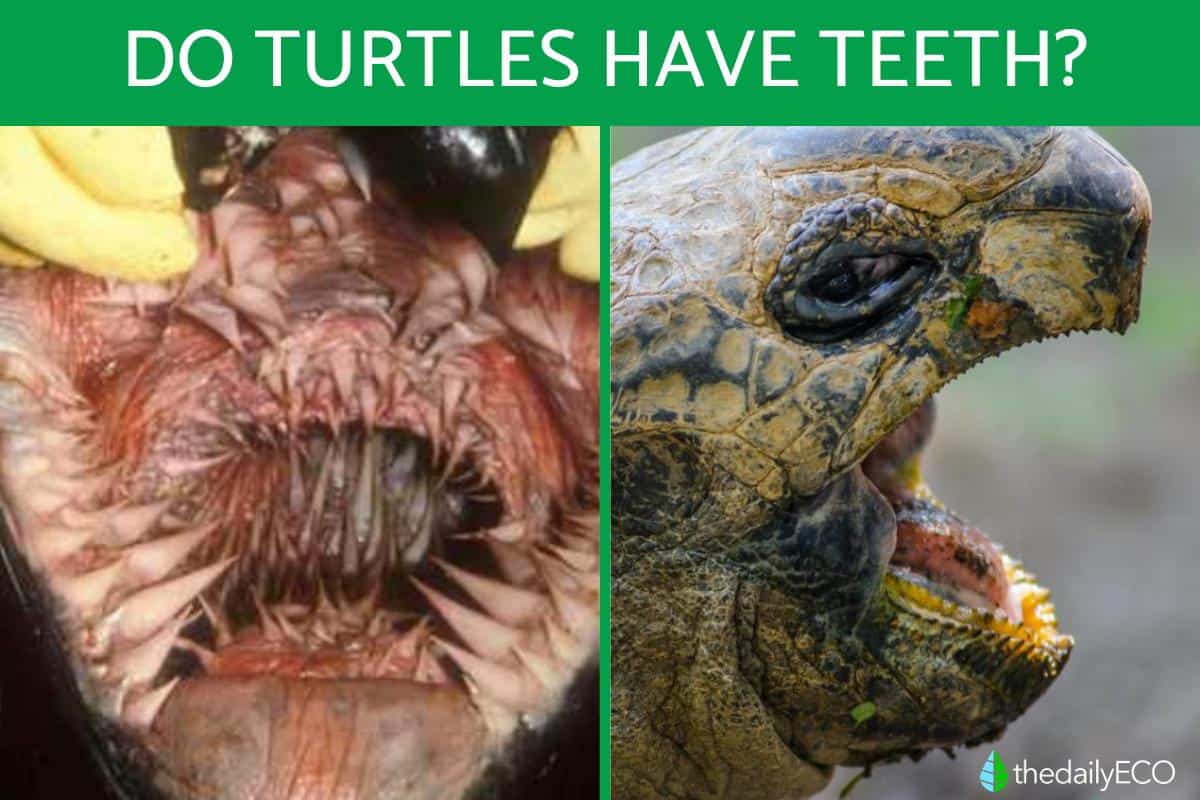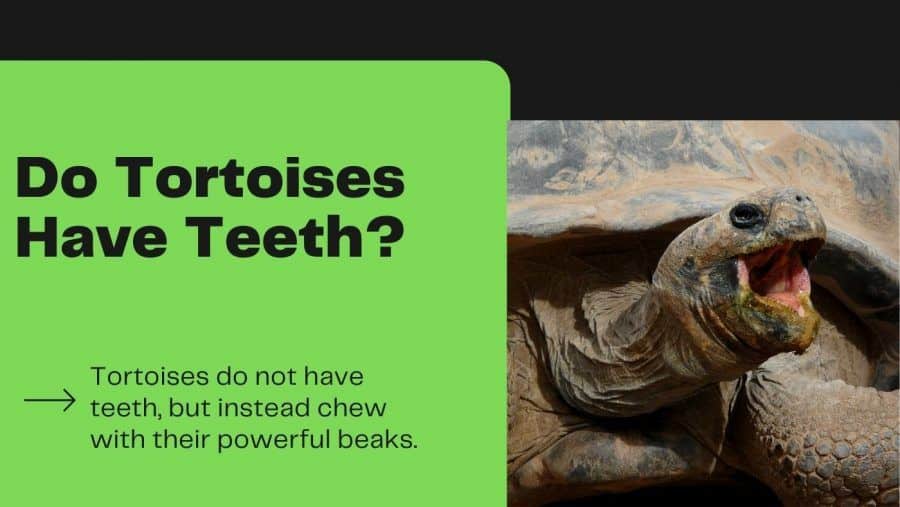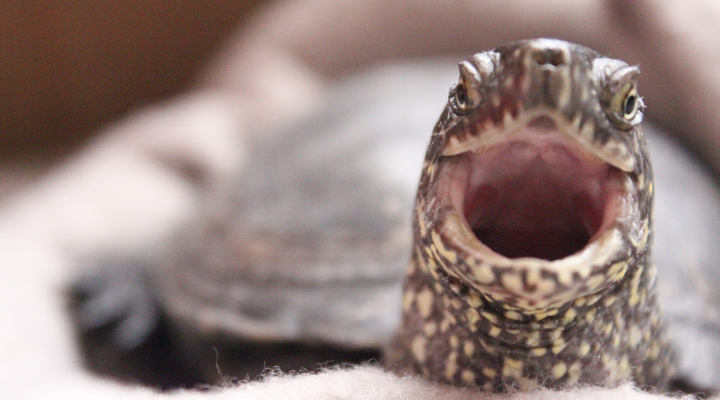Do tortoise have teeth? Tortoises do not have teeth; instead, they have sharp beaks that help them tear and chew their food. However, we will use the word “teeth” throughout this article for easy understanding.
Chomping at the Bit: A Closer Look at Tortoise Teeth
Tortoises are fascinating creatures with unique characteristics, one of which is their teeth. While many people may not think of tortoises as having teeth, they do indeed possess them, and understanding their dental structure and function is crucial for their health and survival.
In this article, we will explore the importance of tortoise teeth, their anatomy, diet and tooth adaptations, common dental problems, signs of dental issues, treatment options, dental care for pet tortoises, the impact of age on dental health, and the evolution of tortoise teeth.
The Importance of Teeth in Tortoise Health and Survival
Teeth play a vital role in a tortoise’s overall health and survival. They are essential for their diet and digestion. Tortoises have a herbivorous diet, consisting mainly of plants and vegetation. Their teeth are designed to help them chew and break down tough plant material, allowing for efficient digestion. Without properly functioning teeth, tortoises would struggle to consume their food and extract the necessary nutrients from it.
Dental problems can have a significant impact on a tortoise’s overall health and survival. If a tortoise has dental issues such as broken or misaligned teeth, it may experience difficulty eating and may not be able to consume enough food to sustain itself. This can lead to malnutrition and weakness, making the tortoise more susceptible to diseases and other health problems. Therefore, understanding tortoise teeth and addressing any dental issues promptly is crucial for their well-being.
Anatomy of Tortoise Teeth: Structure and Function
Tortoises have different types of teeth that serve various functions. They have both incisors and molars. Incisors are located at the front of the mouth and are used for cutting and biting off pieces of food. Molars are located towards the back of the mouth and are used for grinding and crushing food.
The structure of tortoise teeth is unique and well-suited for their herbivorous diet. Their teeth are flat and broad, with ridges that help them grind down tough plant material. The enamel on their teeth is thick and durable, allowing them to withstand the constant wear and tear from chewing abrasive vegetation.
The function of tortoise teeth is to break down plant material into smaller, more manageable pieces. As tortoises chew their food, the teeth grind against each other, effectively breaking down the tough fibers of plants. This process allows for better digestion and absorption of nutrients.
Diet and Tooth Adaptations: How Tortoises Chew and Digest Food
Tortoises have evolved specific tooth adaptations to suit their herbivorous diet. Their teeth are designed to efficiently chew and digest plant material. The flat and broad shape of their teeth allows for effective grinding and crushing of tough vegetation.
Tortoises also have a unique chewing motion that aids in the breakdown of food. They have a side-to-side chewing motion, which helps to grind the food against the ridges on their teeth. This motion, combined with the structure of their teeth, allows them to break down tough plant fibers into smaller particles that are easier to digest.
In addition to their teeth, tortoises have a specialized digestive system that further aids in the breakdown of plant material. They have a large and complex gut that contains bacteria capable of fermenting cellulose, a component found in plant cell walls. This fermentation process helps to break down the cellulose into simpler compounds that can be absorbed by the tortoise’s body.
Common Dental Problems in Tortoises: Causes and Prevention
While tortoises have well-adapted teeth for their herbivorous diet, they can still experience dental problems. Some common dental issues in tortoises include overgrown or misaligned teeth, tooth fractures, and tooth root infections.
One of the main causes of dental problems in tortoises is a diet lacking in proper nutrition. If a tortoise does not receive the necessary nutrients, its teeth may not develop properly, leading to misalignment or weak teeth that are prone to fractures. Additionally, a diet that lacks the proper amount of fiber can result in overgrown teeth, as the constant chewing and grinding against tough vegetation help to naturally wear down the teeth.
Prevention measures for dental problems in tortoises include providing a well-balanced diet that meets their nutritional needs. This includes offering a variety of plant material, such as leafy greens, grasses, and vegetables. It is also important to ensure that the tortoise has access to rough surfaces or objects that they can chew on to help naturally wear down their teeth.
Signs of Dental Issues in Tortoises: What to Look For

It is essential for tortoise owners to be able to identify signs of dental problems in their pets. Some common signs and symptoms of dental issues in tortoises include difficulty eating or loss of appetite, drooling or excessive salivation, weight loss, and visible abnormalities or changes in the appearance of the mouth or teeth.
If a tortoise is experiencing dental problems, it may have difficulty eating and may show a decreased appetite. This can lead to weight loss and malnutrition if not addressed promptly. Excessive salivation or drooling may also be observed if there is pain or discomfort associated with the teeth.
Visible abnormalities or changes in the appearance of the mouth or teeth should also be noted. This can include broken or misaligned teeth, swelling or redness around the mouth, or discharge from the mouth. If any of these signs are observed, it is important to seek veterinary care for proper diagnosis and treatment.
Treatment Options for Tortoise Dental Problems: Medications and Surgery
The treatment options for tortoise dental problems depend on the specific issue and its severity. In some cases, medication may be prescribed to address infections or reduce pain and inflammation. Antibiotics may be used to treat tooth root infections, while pain medication or anti-inflammatory drugs may be given to alleviate discomfort.
In more severe cases, surgery may be necessary to correct dental issues. This can involve trimming or filing down overgrown teeth, extracting broken or infected teeth, or realigning misaligned teeth. Surgery should only be performed by a qualified veterinarian experienced in reptile dentistry.
It is important to note that prevention is always better than treatment when it comes to dental problems in tortoises. Providing a proper diet and regular dental care can help minimize the risk of dental issues and the need for invasive treatments.
Dental Care for Pet Tortoises: Tips and Recommendations
Proper dental care is essential for maintaining good oral health in pet tortoises. Here are some tips and recommendations for dental care:
1. Provide a well-balanced diet: Ensure that your pet tortoise receives a varied diet that includes a mix of leafy greens, grasses, and vegetables. This will help provide the necessary nutrients for healthy teeth and prevent overgrowth.
2. Offer rough surfaces or objects for chewing: Provide your tortoise with rough surfaces or objects that they can chew on to help naturally wear down their teeth. This can include rocks, logs, or specially designed chew toys.
3. Regularly inspect the mouth and teeth: Take the time to regularly inspect your tortoise’s mouth and teeth for any signs of abnormalities or changes in appearance. This can help identify dental issues early on and allow for prompt treatment.
4. Schedule regular veterinary check-ups: Regular veterinary check-ups are important for overall health, including dental health. Your veterinarian can perform a thorough examination of your tortoise’s mouth and teeth and provide any necessary treatments or recommendations.
5. Avoid excessive handling or stress: Excessive handling or stress can cause a tortoise to stop eating or become anxious, which can impact their dental health. Minimize stress and provide a calm and comfortable environment for your pet.
Dental Health and Age: How Tooth Wear Changes with Time
As tortoises age, their teeth naturally wear down due to the constant chewing and grinding against tough vegetation. This wear can result in changes in tooth structure and function over time.
Young tortoises typically have sharp and well-defined teeth, as they have not yet experienced significant wear. As they age, the teeth become more rounded and flattened due to the constant grinding action. This wear is a natural process and helps to maintain the proper function of the teeth.
However, excessive wear can occur if a tortoise’s diet lacks the necessary nutrients or if there are underlying dental issues. This can lead to abnormal tooth wear, such as uneven surfaces or sharp edges, which may require veterinary intervention.
Evolution of Tortoise Teeth: From Ancestral Forms to Modern Adaptations
The evolution of tortoise teeth is a fascinating subject that sheds light on how these creatures have adapted to their environment over time. The ancestral forms of tortoises had teeth that were more similar to those of other reptiles, with sharp and pointed teeth for capturing and tearing prey.
However, as tortoises transitioned to a herbivorous diet, their teeth underwent significant changes. The teeth became flatter and broader, with ridges that allowed for efficient grinding of plant material. This adaptation allowed tortoises to effectively break down tough vegetation and extract the necessary nutrients from their diet.
The evolution of tortoise teeth is an excellent example of how organisms adapt to their environment and the specific challenges they face. Understanding these adaptations can provide valuable insights into the biology and ecology of these remarkable creatures.
The Fascinating World of Tortoise Teeth and Their Importance for Conservation
In conclusion, tortoise teeth play a crucial role in their health and survival. Understanding the anatomy, function, and adaptations of tortoise teeth is essential for ensuring their well-being. Dental problems can have a significant impact on a tortoise’s overall health and can even threaten their survival.
By providing a proper diet, regular dental care, and prompt treatment for any dental issues, we can help maintain the dental health of tortoises. This is especially important for pet tortoises, as they rely on their owners for their care.
Furthermore, understanding the evolution of tortoise teeth provides valuable insights into the biology and ecology of these creatures. It allows us to appreciate the remarkable adaptations that have allowed tortoises to thrive in their environments.
Ultimately, the fascinating world of tortoise teeth highlights the importance of conservation efforts to protect these incredible creatures and ensure their survival for future generations.
Originally posted 2024-01-02 09:39:32.

